Search
Search Results
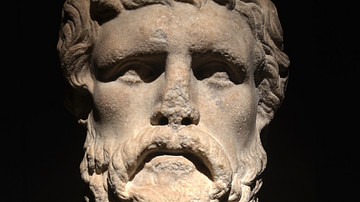
Definition
Xenophon
Xenophon of Athens (l. 430 to c. 354 BCE) was a contemporary of Plato and a fellow student of Socrates. He is best known for his Anabasis (The March Up Country) detailing the retreat of the Ten Thousand Greek mercenaries after the defeat...

Article
Xenophon's Defense of Socrates
Xenophon's Defense of Socrates (c. 371 BCE) is a passage from the Memorabilia of Xenophon (l. 430 to c. 354 BCE) in which he addresses the teachings and actions of Socrates of Athens and denounces the charges against him as unjust and unfounded...
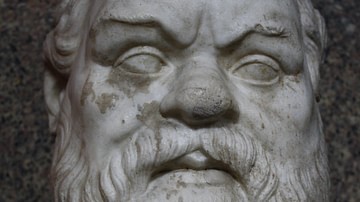
Definition
Socrates
Socrates of Athens (l. c. 470/469-399 BCE) is among the most famous figures in world history for his contributions to the development of ancient Greek philosophy which provided the foundation for all of Western Philosophy. He is, in fact...

Article
Plato's Greater, Better World in The Last Days of Socrates
The Last Days of Socrates is a modern-day title for the collection of four Socratic dialogues by the Greek philosopher Plato – the Euthyphro, Apology, Crito, and Phaedo – telling the story of the trial, imprisonment, and death of Socrates...
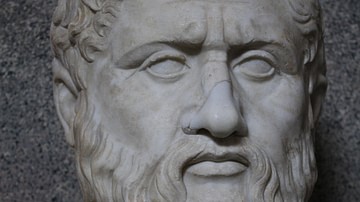
Definition
Plato
Plato (l. 424/423 to 348/347 BCE) is the pre-eminent Greek philosopher, known for his Dialogues and for founding his Academy in Athens, traditionally considered the first university in the Western world. Plato was a student of Socrates and...

Article
Plato: The Name and The Poet
Plato (l. c. 424/423 to 348/347 BCE), the Greek philosopher whose works have significantly shaped Western thought and religion, is said to have initially been a poet and playwright and, even if the primary source of this claim (the often...

Article
Plato's Euthyphro: An Overlooked Comedy
Plato's Euthyphro is a Socratic dialogue on the concept of piety whose meaning and purpose continue to be debated. In reading the work only as a serious inquiry into the definition of an abstract concept, however, one is apt to miss the comical...
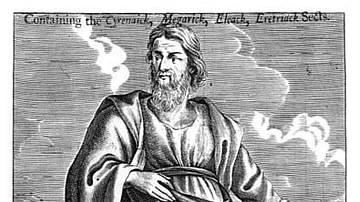
Definition
Aristippus of Cyrene
Aristippus of Cyrene (l. c. 435-356 BCE) was a hedonistic Greek philosopher who was one of Socrates' students and founder of the Cyrenaic School of philosophy which taught that pleasure and the pursuit of pleasure was the highest good and...
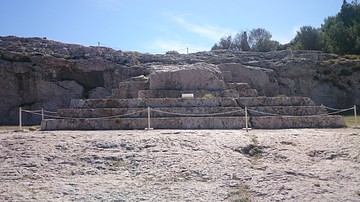
Definition
Critias
Critias (l. c. 460-403 BCE) was an Athenian politician, poet, and playwright, one of Socrates' followers, Plato's second cousin, a leading member of the Thirty Tyrants of Athens, and leader of the oligarchy they established. He is referenced...

Article
The Life of Aristippus in Diogenes Laertius
Aristippus of Cyrene (l. c. 435-356 BCE) was a hedonistic Greek philosopher who taught that the meaning of life was pleasure and that the pursuit of pleasure, therefore, was the most noble path one could pursue. Along with Plato, Xenophon...